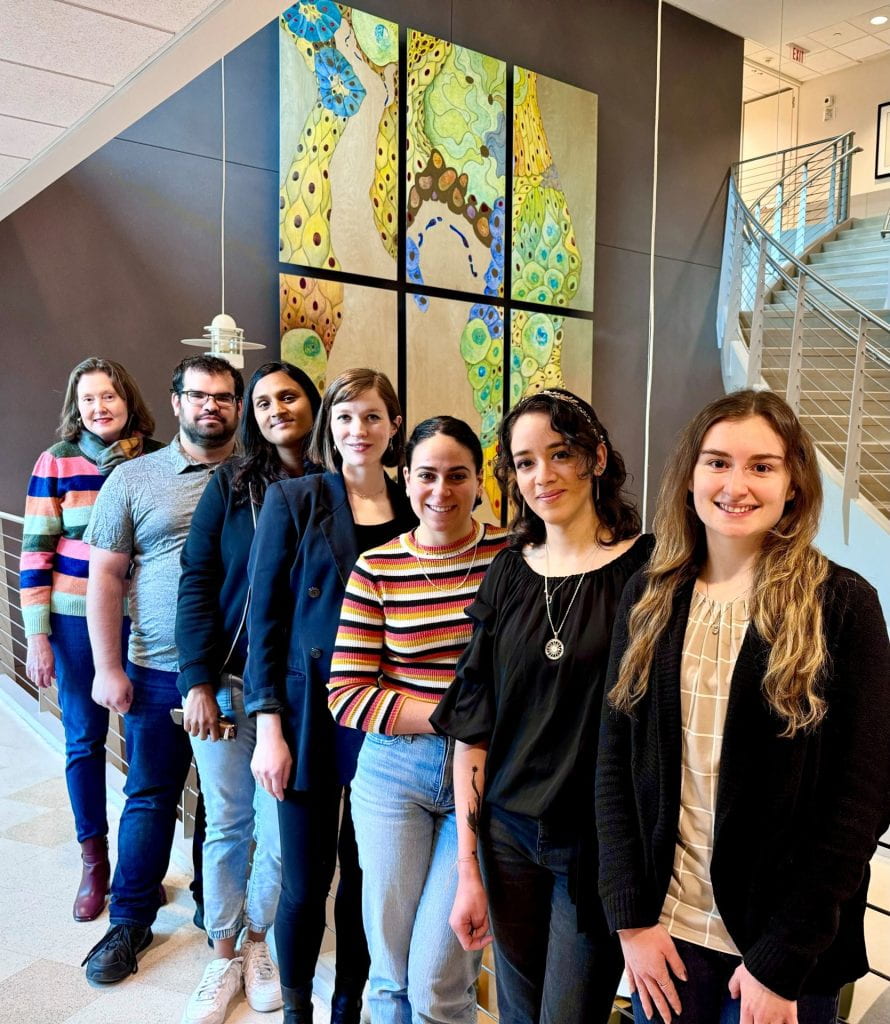
ImmunoEngineers are scientists who utilize engineering tools and principles to investigate the immune system’s functions in both health and disease. Their goal is to develop innovative solutions that can enhance the well-being of patients. The National Institute of Health (NIH) has renewed its first T32 Research Program in ImmunoEngineering to help the Georgia Institute of Technology train the next generation of leaders in ImmunoEngineering.
The NIH T32 grant, entitled “Research Training in ImmunoEngineering”, has been renewed until May 2028. Professor Julia Babensee at Georgia Tech continues to serve as the Program Director with co-directors Professor Susan Thomas at Georgia Tech and pioneer immunologist Rafi Ahmed, Ph.D., at Emory University.
“In 2017, we were the first ImmunoEngineering training grant awardee in the nation that we know of.” says Babensee, who applied for the renewal grant and is managing the program. “The renewal underscores the NIH’s acknowledgment of the significance of this emerging discipline, reaffirming their vision for its importance.”
The T32 Program is pleased to announce the appointment of four new graduate trainees to the training program. The new trainees and their respective advisors are Deepali Balasubramani (Professor Ankur Singh), Alisyn Bourque (Professors Susan Thomas and M.G. Finn), Anna Davis (Professor Leslie Chan), Augustine Duffy (Professor Ravi Kane), Erin Connolly (Professor Greg Gibson), and Carolina Colon (Professor Todd Sulchek, deferred to next year). As part of the T32 program, selected trainees work on collaborative research projects in the ImmunoEngineering field involving Emory Immunology investigators. This year’s research projects include the development of lymphoid technologies to investigate immune-tumor crosstalk, engineering temporal control of drug delivery for anti-tumor therapeutics, development of immunomodulatory biologics and small molecule drugs for Chron’s disease, designing pan-sarbecovirus vaccines, and microfluidic-based production of CAR-T cells.
“At Georgia Tech, we have an outstanding tradition of commitment to educating researchers,” says Ankur Singh, who serves as the Director of the Center for ImmunoEngineering at Georgia Tech. “The ImmunoEngineering T32 program is designed to equip trainees with comprehensive training, ensuring they are exceptionally well-prepared to become leaders in the burgeoning field of ImmunoEngineering.”
Under the previous funding period, the program trained 12 trainees in ImmunoEngineering. Graduated trainees have gone on to hold successful industry positions (Sofusa, Alcon, and start-up Guide Therapeutics) and consulting roles (Bain & Company). Central programmatic components of the T32 are the ImmunoEngineering curriculum, Journal Club, and meeting with industry seminar speakers. The ImmunoEngineering Industry Symposium for renewed T32 is scheduled for June 2024 to bring in prominent industry speakers. This symposium will be sponsored in part by the Georgia Tech Petit Institute for Bioengineering and Bioscience (IBB) and the Center for ImmunoEngineering at Georgia Tech.
The renewal of this NIH T32 grant is a tribute to the NIH’s enthusiasm for Georgia Tech’s T32 program and the strong pool of students, high-quality program training faculty, and the strong collaborative relationships we with have with immunology researchers at Emory University.
CONTACT:
Savannah Williamson
Parker H. Petit Institute for Bioengineering and Bioscience
